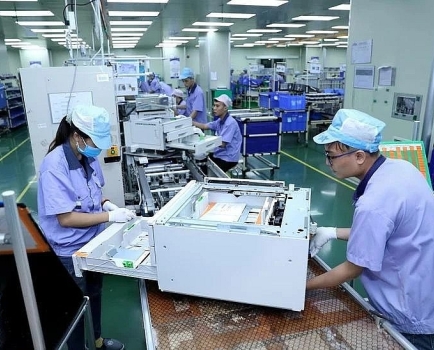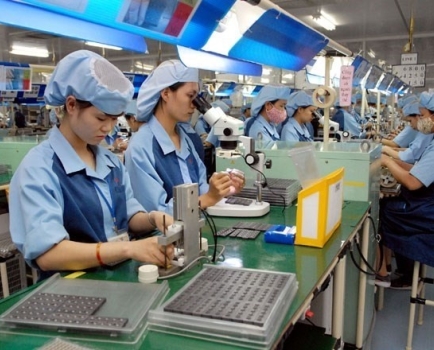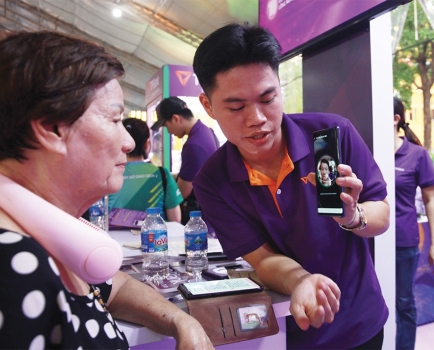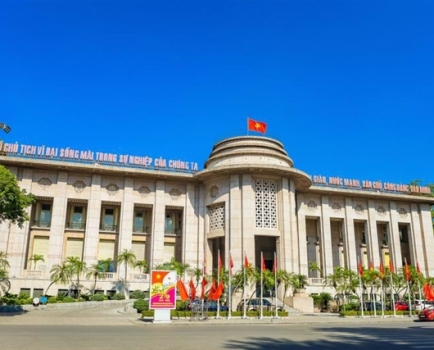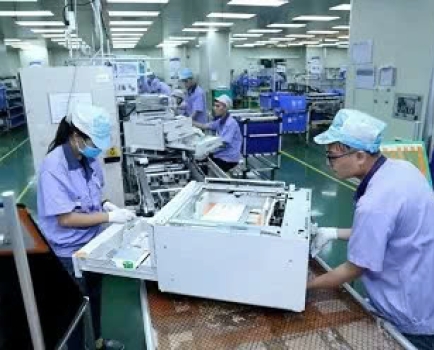Fragmented Hanoi water supply system cannot respond to crises, former official says
Mon, 21 Oct 2019 15:30:00 | Print | Email Share:
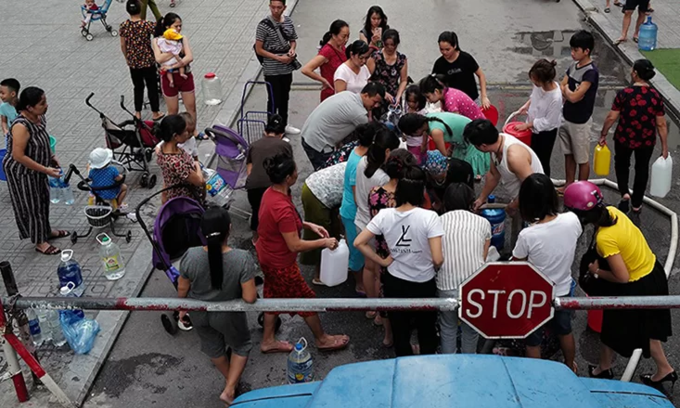
from a tanker as their tap water has been contaminated with oil,
October 16, 2019. Photo by VnExpress/Giang Huy.
Lack of coordination in Hanoi’s water supply system prevents it from responding well to possible crises like the recent contamination of a water source.
Tran Quang Hung, a former deputy head and general secretary of the Vietnam Water Supply and Sewerage Association, told VnExpress: "In Hanoi, the protection of water sources is uncoordinated. Unlike many other cities, Hanoi's system of water distribution is too fragmented, with many companies handling the task [independently]. So when something happens, one company's supply network cannot support another company's."
Hung said the southern metropolis Ho Chi Minh City supplies water through the Saigon Water Company (Sawaco). This company uses its own water sources and also buys water from other water supply firms to distribute it to the entire city, which is beneficial to both the public and other water companies.
"When the private sector gets to supply water, it only cares about profit and does not innovate technologies or protect water sources," Hung said.
The recent oil contamination of Hanoi's water supply was, for instance, due to low-quality pipes and poor management, he pointed out.
Hung expressed surprise at how poorly Vinaconex Water Supply Joint Stock Company (Viwasupco) handled the contamination, continuing their operations despite knowing the water was tainted.
"Maybe they did not fully know the characteristics of used oil or they lacked patience, and continued their operations without informing the city authorities of the situation. Moreover, they increased the chlorine level in the water, a thoughtless act that caused the oil to further permeate the whole system," he said.
"It shows that the people who run [Viwasupco] are not only irresponsible, but also ill-informed."
Hanoi should centralize its water distribution system, making sure it meets safety standards and finding ways to store and sustain its groundwater sources, he said.
"Clean water is a public necessity, not something to be commercialized."
On October 8, a tanker truck dumped used oil into a creek in Ky Son District, Hoa Binh Province to the north of Hanoi. The creek feeds into the Da River, from which Viwasupco draws water to supply around one million people, or an eighth of the city’s population, in the southwest of the capital.
Two days later residents detected an unpleasant, pungent odor in their tap water. Tests of the water showed that the level of styrene, a compound thought to be carcinogenic, was 1.3-3.6 times higher than normal.
City authorities then warned residents they should not use the water for drinking or cooking but only for other purposes like washing clothes and bathing.
Last Thursday Viwasupco restored water supply after a one-day suspension for cleaning its pipes and reservoirs. Hanoi officials said the same day that latest water samples passed safety tests, but continued to advise people against drinking or cooking with it until further notices.
By Sunday three people who dumped the oil into the creek have been arrested.
By: Doan Loan/Vnexpress
---------------------------------------------
Same category News :



